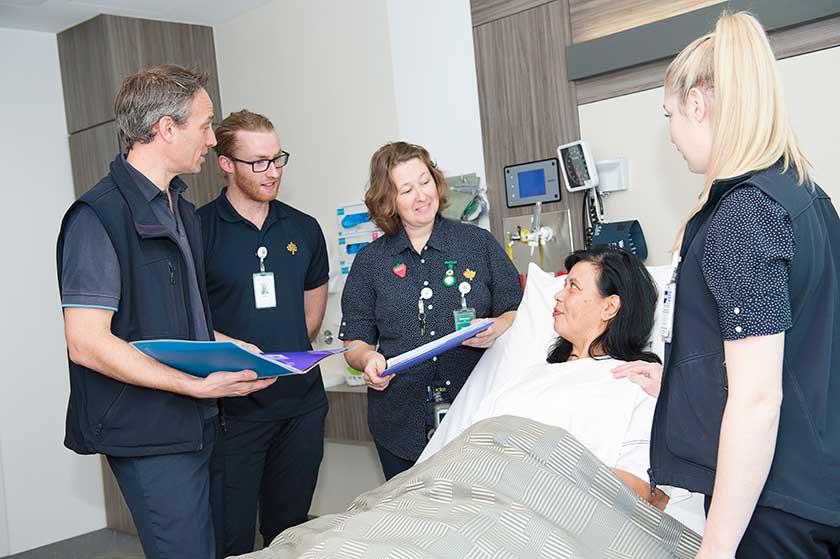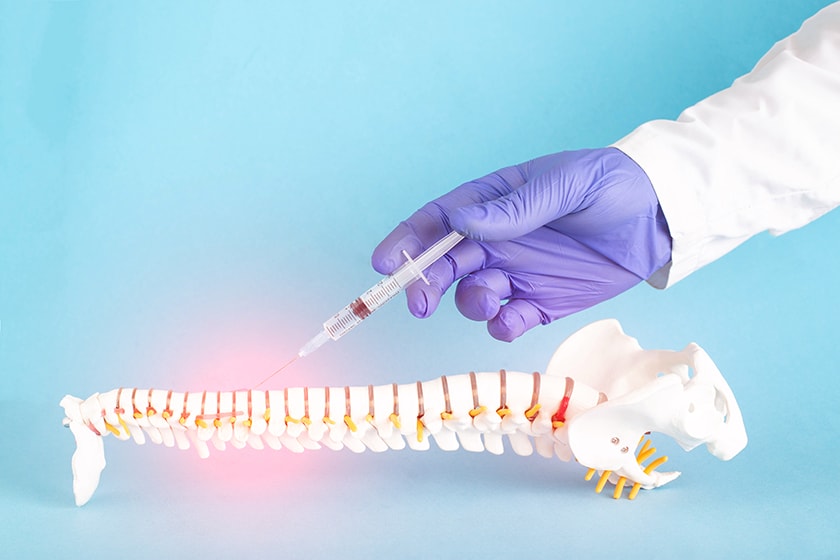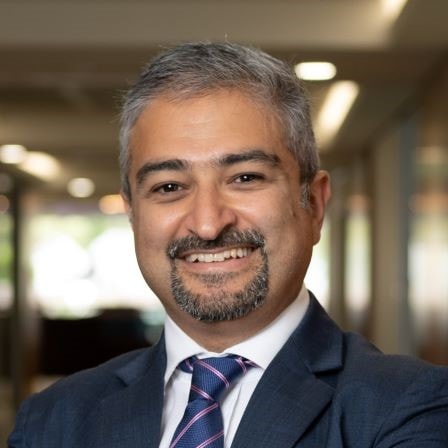It is common, unfortunately to experience some pain or discomfort after orthopaedic surgery, such as knee replacement, hip replacement and shoulder surgery. There are however, many options available to manage your pain.
Why should I have pain relief?
Studies have shown that adequate pain relief can assist and encourage rehabilitation, improve patient outcomes and reduce your length of hospital stay.
Good pain control in the acute phase, immediately after surgery, has also been shown to decrease the risk of developing persistent (chronic) pain.
Initially, you may be offered medication, pre-emptively, when your pain level is low to moderate, to prevent it increasing when you move, before physiotherapy for example.
Some people feel concerned about the side effects of pain medications but it is important to know you will be observed closely for your responses to the various pain therapies used.
Most side effects can be managed quickly when reported early.
There are a number of disadvantages to not having the pain treated adequately, so if you have any concerns you should discuss them with your caregivers. There are no prizes for grinning are bearing it or being too stoic.
What pain management options are available?
The choices of pain management techniques include:
- Tablets
- Pain patches
- Patient Controlled Intravenous Analgesia (PCIA)
- Epidural
- Regional blocks
- Intrathecal morphine or other analgesia placed during spinal anaesthetic
- Other relieving methods including positioning and cold packs.
Sometimes a combination of pain relieving techniques are used to provide better pain relief.
Distraction can often help also. When you are engaged in a simple activity that you enjoy, you may not notice the pain as much, as your focus is elsewhere. Activities like listening to music, reading and watching a movie for example.
Patient Controlled Intravenous Analgesia (PCIA)
A pump is used which allows you to administer a measured dose of analgesia by pushing a button on the handset. It is important that no one else pushes the button but you.
Regional blocks or infusions
These techniques involve delivering local anaesthetic alongside a nerve or group of nerves either as a single shot during theatre, or a continuous infusion after your surgery.
One of the advantages of these techniques is their ability to deliver pain relief at the site of pain and therefore not affecting your whole body. They can also reduce your need to take strong analgesia tablets. Because a local anaesthetic is used, you may experience some numbness or altered sensation or weakness in the local area to the infusion and the caregivers will assess this.
When can I have pain relief?
Your anaesthetist will make an assessment after talking with you, and write up medications they think will be appropriate to treat your pain after your surgery.
The anaesthetist will take into account what pain medications you have been taking prior to your admission.
Your post-operative prescription will generally include pain medications that are given regularly, and others that are ‘as required’. These ‘as required’ medications are only given if requested by you, or offered by the caregiver if they think appropriate.
For example, paracetamol, although not a strong pain medication used alone, will often be written up to have regularly, as it has been shown it can boost the effect of stronger pain medications, and also reduce the amount of stronger pain medications that you may require.
Your nurses will also do regular assessments of your pain after surgery and monitor your response to the treatments you are receiving.
It is important that you let your nurses know if you are experiencing any side effects (e.g. drowsy, nausea, dizziness, constipation or hallucinations) and if your pain is not well managed. It is better to get it treated before it gets to severe.
Your doctor, anaesthetist or an acute pain service can always be contacted if your pain is not been adequately managed with the therapies prescribed.
Can I become addicted to the medication I am taking?
You may be afraid to take strong opioid analgesia because of the risk of addiction. Because of all the benefits to your health of having pain well controlled in the initial days post-surgery we do often give these strong medications for major surgery. However, these are often only required short term and their need is regularly evaluated.
We do have more options these days and fortunately do not need to rely so much on strong opioid medications as we did previously.
It is possible to develop a dependency to some medications over a prolonged period.
However, adhering to the correct dosage and your doctor’s directions makes dependency unlikely in the short term.
For more information on your pain relief options, please contact your specialist.








